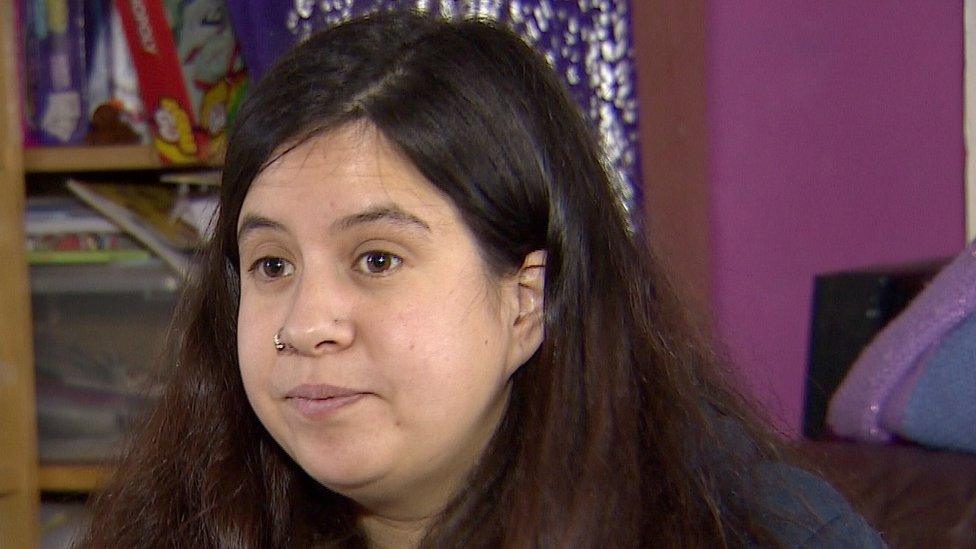Cost of living: 'Families of disabled people are already struggling'
- Published
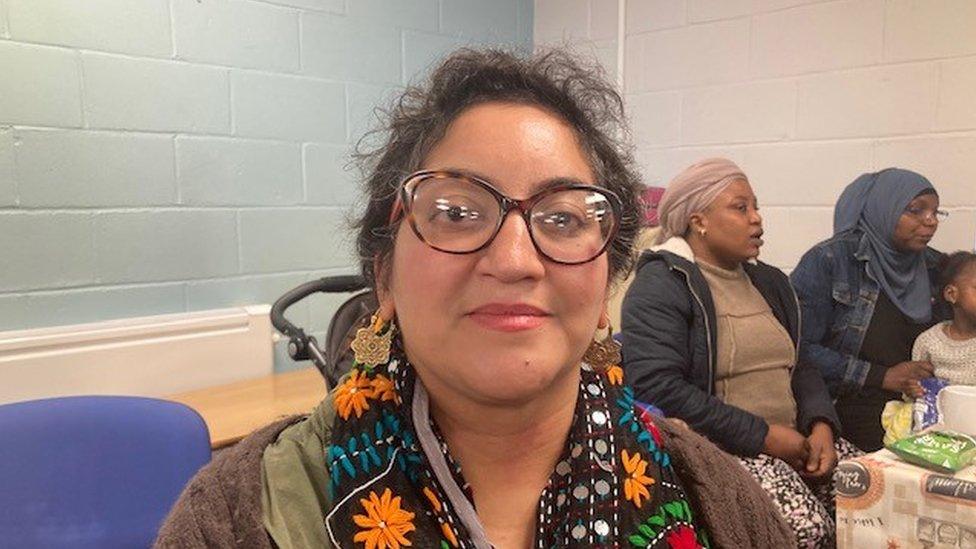
Parent-carer Nazreen Bibi says her wages and benefits do not cover her cost of living
The government says it understands "the pressures" faced by families on tighter budgets and is taking action. But what does the rising cost of living mean for the families of children with disabilities, who claim their fuel and energy bills were already higher than for most others?
Nazreen Bibi cares for her autistic daughter and says rising costs are "really stressful".
"It's just the constant worry," she says. "It's not just one thing - it's the cost of fuel, the cost of bills, the cost of food and the rising council tax.
"For families of disabled people that cost was already high."
She is one of those supported by the charity Family Voice Peterborough, which has set up Wednesday drop-in sessions for people to get a hot drink, a meal and support.
"Using public transport can be difficult with a disabled child so you have to have a car," she says. "Families are already struggling and benefits haven't increased with the cost of living crisis."
The government says it is taking action to support households with rising prices but Ms Bibi says: "Before the cost of living crisis, families were already spending more so it doesn't plug that gap.
"It's just putting a plaster on it, it doesn't solve the problem."
She also warns that if the cost of living continues to rise "the impact on mental health will be significant especially for parent-carers".

'It is really tricky to manage sometimes'
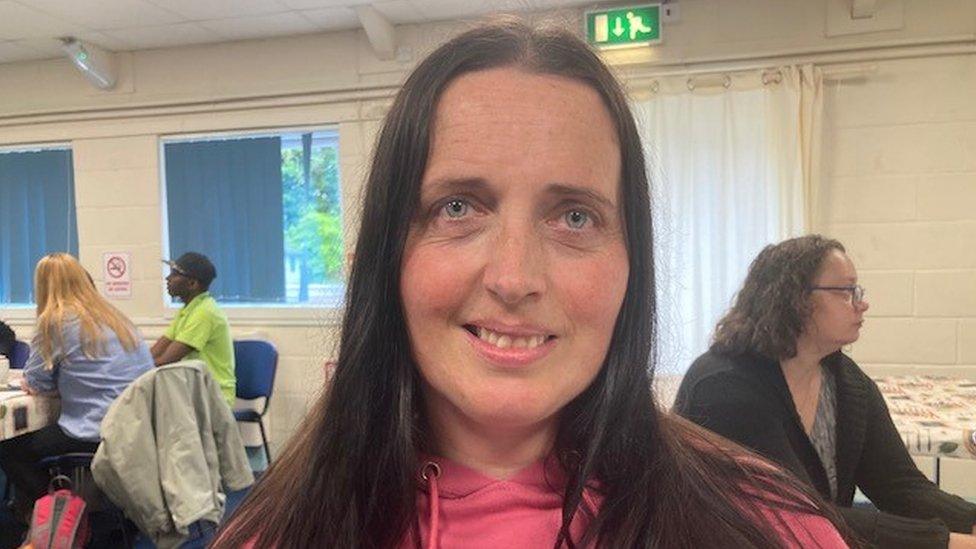
Tanya Smith, a lone parent, says there is not enough financial support for families like hers
Tanya Smith is a single parent with special educational needs children, says without the support from Family Voice in Peterborough "things would have been difficult".
She says: "I find I'm struggling financially with things because we have no choice to put fuel in cars to take children to school and to pre-school.
"There are not [pre-school] places in our area, so I'm having to travel out of the area.
"The cost of food is going up, cost of electricity, gas, everything - I find it really tricky to manage sometimes."
Ms Smith says with children with special educational needs "you always have to fight for everything and for support".
"For single parents like myself there is not enough support" from local authorities and the government, she says.
But at the drop-in sessions she is both being helped and helping others.
"From experiencing the things I've been going through, with what other people are going through I can help so they don't get stuck in crisis.
"It's all about helping each other and supporting each other."

'Costs going beyond what they can cope with'
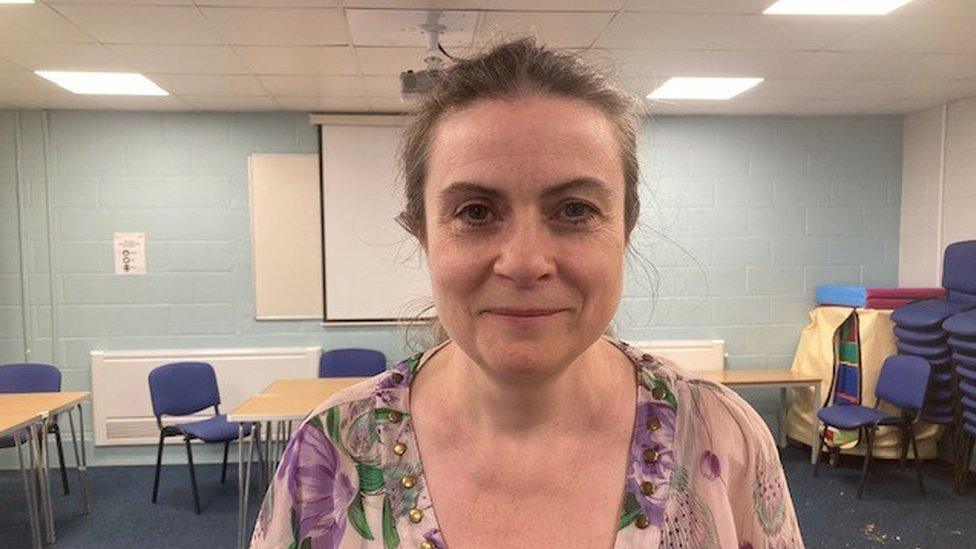
Chief operating officer of Family Voice Peterborough says the cost of living is hitting families they support
Louise Ravenscroft from Family Voice Peterborough says the charity is over-capacity and "seeing a real demand for services".
"Families of children with disabilities or children with special education needs are always detrimentally impacted by financial constraints because the cost of caring for a child is higher anyway.
"Going to hospital appointments, having to have the heating on more, doing more washing, so those families are seeing their costs going beyond what they can cope with."
She says the team at the charity "want to make it better for families, most of us are parent-carers, we don't want families to go through what we went through".
Ms Ravenscroft says the pandemic has also had an impact on their finances and operations.
"We've had to start from scratch again. The past 18 months have been a real struggle to get back to where we are now."

'Taking action'
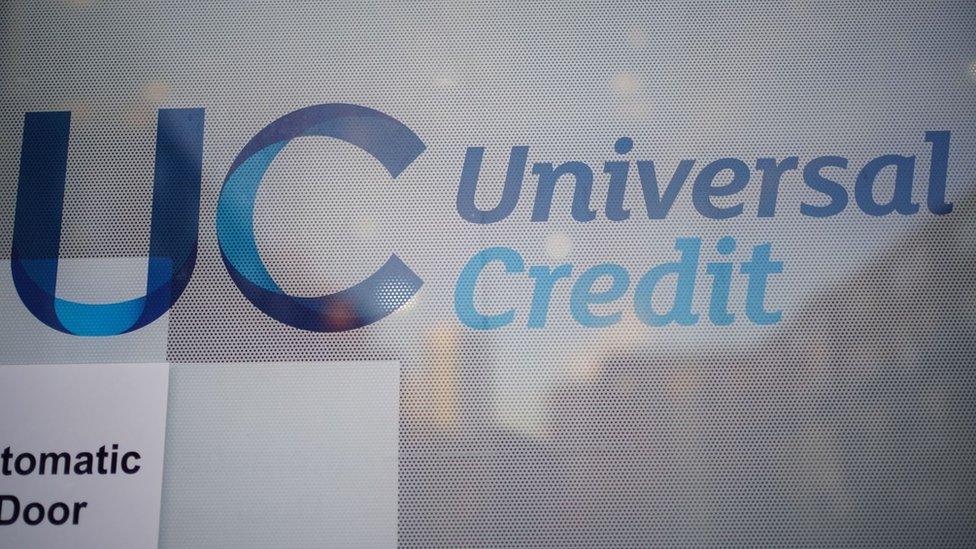
The government says lowering the Universal Credit taper rate will help people keep more of the money they earn
On Tuesday, Prime Minister Boris Johnson told MPs debating the Queen's Speech that he and the chancellor would be "saying more" about ways to help people with cost of living "in the days to come".
A spokesman for the government says it "understood the pressures" faced by families on smaller budgets and is taking action.
He added it was "putting an average of £1,000 pounds into the pockets of working families on Universal Credit" as well as boosting the minimum wage.

Find BBC News: East of England on Facebook, external, Instagram, external and Twitter, external. If you have a story suggestion email eastofenglandnews@bbc.co.uk, external
- Published11 May 2022

- Published12 May 2022
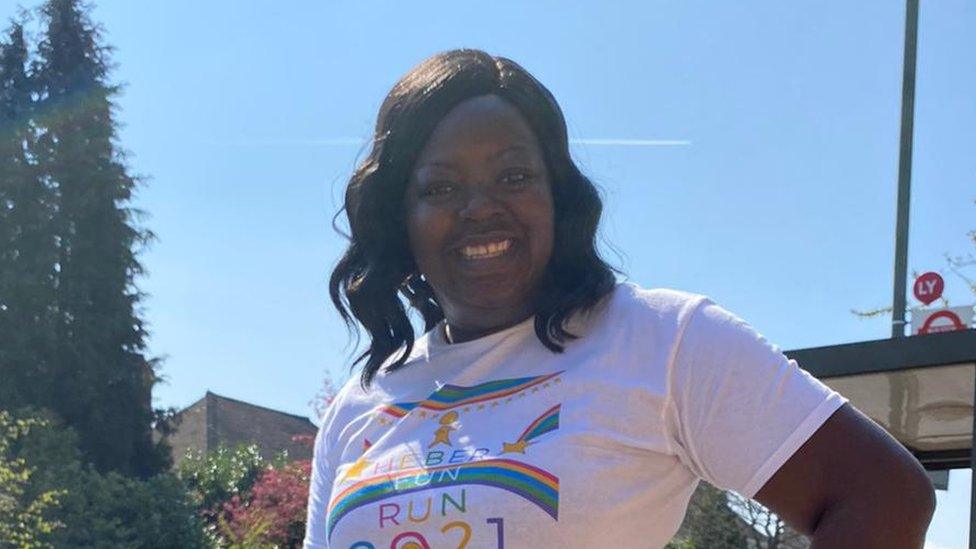
- Published29 April 2022
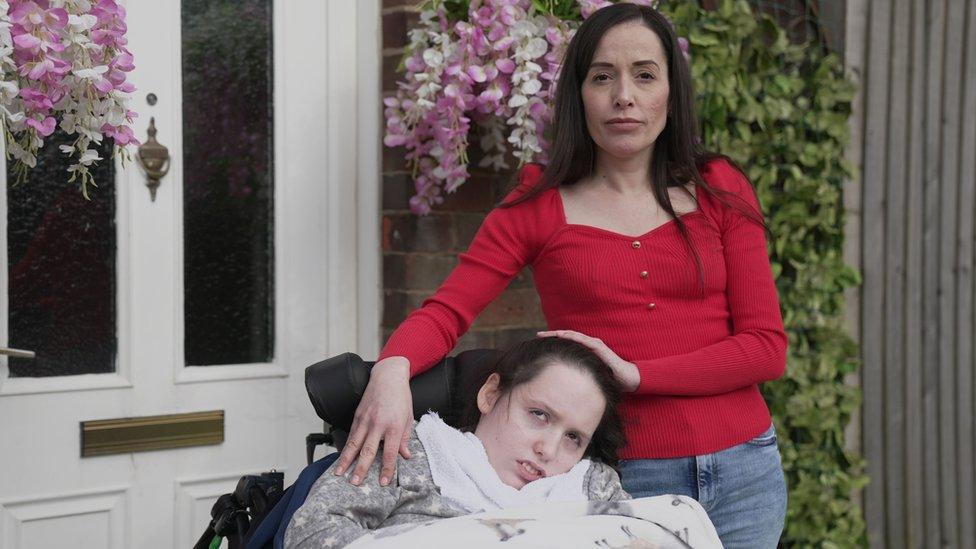
- Published4 February 2022
